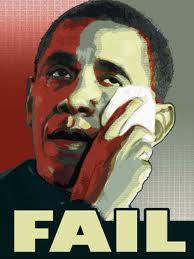Edited by Peter L. McGuire

I have nothing to offer but blood, toil, tears and sweat. Can you imagine Winston Churchill crying as he pronounced these memorable words in front of the House of Commons on May 13, 1940, while the motors of the Nazi fighter-bombers roared in the sky over England?
Absolutely inconceivable. That great leader of liberal democracy (which did not stop him from being racist, alcoholic, warmongering and ostensibly sexist), in one hand always a great big cigar and in the other a glass of whiskey, would never have been able nor wanted to cry in public (supposing he could even cry in private) because men like him permitted tears to their people, to their nation; they did not spend them and spill them for themselves. If the statesmen who, in the course of the 20th century, first destroyed and then reconstructed Europe and the West, had abandoned themselves to tears in the poignant moments of their history, a good part of the century would have been spent crying. Above all, if they had cried, they would not have been statesmen.
But Barack Obama, President of the United States of America, Commander in Chief of the most powerful army in the world, cries in public. He breaks down in tears in front of the volunteers of his electoral campaign at his headquarters in Chicago, the day after his re-election, and immediately Jim Messina, head of the electoral staff, hurries to post the video online, publicizing it to the world.
The difference between Obama and Churchill could not be more distinct and yet, notably, it is the same words, pronounced then and now, which cause one to cry or not to cry. Obama is moved when he mentions pride (“I’m proud of you,” he says to his young people in the fateful moment), faith in themselves, hope for the future; he cries when he feels part of a community in the presence of history (“Your work will remain in the history books.”)
What have we lost and what have we gained in the transformation of leadership from the Churchill model to that of Obama? We have lost the father – in this case the father of the fatherland – and gained a half-breed – which Obama incarnates to perfection also on a racial level – which we still do not know how to name. In these last decades society has been feminized, politics maternalized (according to the codes of the old masculine, sexist and patriarchal world, of course); both live in an amnion dominated by the prevalence of emotions, to which the virile men of the media and even those of war always point, an amnion of hallucinatory and immediate satisfaction of our needs which makes us psychologically regress en masse toward the very first stages of infantile evolution. This has been the disproportionate bloating of the debt in western democracies of the last decades: the stubborn desire to give the teat to the public.
We do have sympathy for them, our crying political leaders (we have seen a string of them even in these parts). But perhaps it would be more appropriate if we threw back to them a little of our affectionate sympathy and recalled them to the responsibilities that were once of the paternal archetype: to be strong but just, to have a plan, a character, an intention, to renounce immediate enjoyment in the name of a possible future, to let oneself be guided by ethical decisions on the very uncertain path of this world, to reaffirm the sense of continuity that conquers time. Perhaps one can try to do all this without sexism, without warmongering, without racism and without alcoholism. Certainly the first thing that Barack Obama must do, this great weak leader, this unkempt promise, will be to take the teat of debt out of the mouth of America and the West.

Leave a Reply
You must be logged in to post a comment.